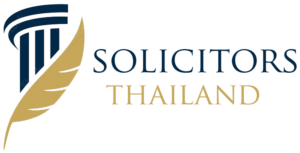Mortgages in Thailand are available to both Thai nationals and, in certain cases, to foreigners, but the process and conditions can vary significantly depending on residency, property type, and financial status. While Thai nationals can more easily access mortgage loans, foreign buyers face certain restrictions but can still secure financing for condominiums or leasehold properties, typically through specific channels or foreign-friendly banks.
1. Eligibility for Mortgages
a) Thai Nationals
Thai citizens generally have easier access to mortgage loans from local banks and financial institutions. Lenders assess eligibility based on factors like:
- Income and Employment Stability: Proof of stable employment and sufficient income is essential.
- Credit History: Banks review an applicant’s credit history and financial health to determine loan eligibility.
- Debt-to-Income Ratio: Lenders usually require that monthly repayments not exceed a certain percentage of the borrower’s income, often around 30%.
b) Foreigners
Foreign nationals face more restrictive lending conditions, particularly regarding land ownership, as Thailand does not allow foreigners to own land outright. However, foreigners can obtain mortgages for:
- Condominiums: Foreigners can own and mortgage a condominium as long as foreign ownership in the building does not exceed 49% of the total units.
- Leasehold Property: Some banks offer financing for long-term leasehold agreements, though typically at less favorable terms than for freehold properties.
- Local Financing: Foreigners living and working in Thailand may be eligible for mortgages if they can prove stable income and residency in Thailand. Certain Thai banks, such as Bangkok Bank or Siam Commercial Bank, may offer loans to foreigners, but these are usually more difficult to secure than for Thai nationals.
Foreigners may also use offshore financing through international banks or financing institutions, which offer a solution to those struggling to secure local financing.
2. Types of Mortgages in Thailand
There are several types of mortgages available to property buyers in Thailand:
a) Fixed-Rate Mortgages
These mortgages offer a fixed interest rate for a specified period, generally 1 to 5 years. After the fixed period ends, the mortgage usually reverts to a floating rate, which is typically indexed to the bank’s Minimum Retail Rate (MRR).
b) Floating-Rate Mortgages
The interest rate in a floating-rate mortgage fluctuates based on the market or the bank’s reference rate, such as the MRR or the Minimum Loan Rate (MLR). These mortgages can be riskier for borrowers because interest rates may rise unexpectedly.
c) Balloon Payment Mortgages
This type of mortgage involves low monthly payments during the term of the loan, followed by a large lump sum balloon payment at the end of the term. This structure is less common but may be suitable for buyers who expect a significant increase in income or funds in the future.
3. Key Factors Considered by Banks
Banks in Thailand consider several factors when assessing mortgage applications:
a) Loan-to-Value Ratio (LTV)
Thai banks typically offer 80% of the property’s appraised value as a mortgage for Thai nationals, with the buyer covering the remaining 20% as a down payment. For foreigners, the LTV ratio may be lower, ranging from 50% to 70%, requiring a larger down payment.
b) Income Verification
For Thai nationals and foreigners working in Thailand, proof of income is required. Foreigners working abroad who wish to secure a Thai mortgage may need to provide detailed income documentation and proof of assets.
c) Collateral
The property being purchased serves as collateral for the loan. The bank will appraise the property to determine its market value, and this valuation affects the amount of the loan.
d) Age and Term of Loan
The borrower’s age is also a key factor, as Thai banks generally limit the maximum loan term to 30 years or until the borrower reaches 65 years of age. Older applicants may face shorter loan terms, resulting in higher monthly payments.
4. Foreign Mortgage Options and Challenges
For foreigners, securing a mortgage in Thailand can be more complicated due to ownership restrictions and risk factors perceived by banks. However, certain banks offer tailored products for foreign investors:
a) Foreign-Friendly Mortgages
Some Thai banks offer mortgage products specifically for foreign nationals purchasing condominiums. These loans often come with higher interest rates and stricter conditions, such as larger down payments and shorter loan terms.
b) Offshore Financing
Many foreign investors opt for offshore mortgages through international banks or foreign branches of Thai banks. Offshore financing offers more flexibility, but often at higher costs and more complex legal structures.
c) Joint Ventures
Foreigners can also enter joint ventures with Thai nationals or companies, allowing them to access more favorable loan terms, especially when developing real estate projects or large commercial properties.
5. Mortgage Process and Documentation
a) Application Process
The mortgage application process typically begins with submitting an application and supporting documentation, including:
- Proof of Income: Salary slips, bank statements, or business financials.
- Personal Identification: Passport for foreigners, or national ID for Thai nationals.
- Sales Agreement: The contract for the property purchase.
- Title Deed: Documentation of the property’s title, showing it is free from encumbrances.
b) Approval and Disbursement
Once the bank reviews the application and conducts an appraisal of the property, they will issue a loan approval or rejection. Upon approval, the bank disburses the funds, usually directly to the seller during the transfer of ownership at the Land Department.
6. Costs and Fees
Beyond the principal and interest payments, borrowers should consider other associated costs, such as:
- Loan Origination Fees: Banks may charge an upfront fee for processing the mortgage application, typically around 1-2% of the loan value.
- Appraisal Fees: The bank requires a professional property appraisal, which the borrower is responsible for paying.
- Legal Fees: Hiring a lawyer to review the sales agreement, mortgage contract, and oversee the transfer at the Land Department is recommended.
- Insurance: Many banks require borrowers to purchase mortgage protection insurance, which covers the loan in the event of the borrower’s death.
Conclusion
Securing a mortgage in Thailand, whether as a Thai national or a foreigner, requires navigating complex regulations and banking procedures. While Thai nationals generally find more favorable terms, foreigners can still secure mortgages for condominiums or leasehold properties through local banks, offshore financing, or joint ventures. Understanding the loan conditions, ownership restrictions, and financial requirements is critical for successfully financing property in Thailand.

